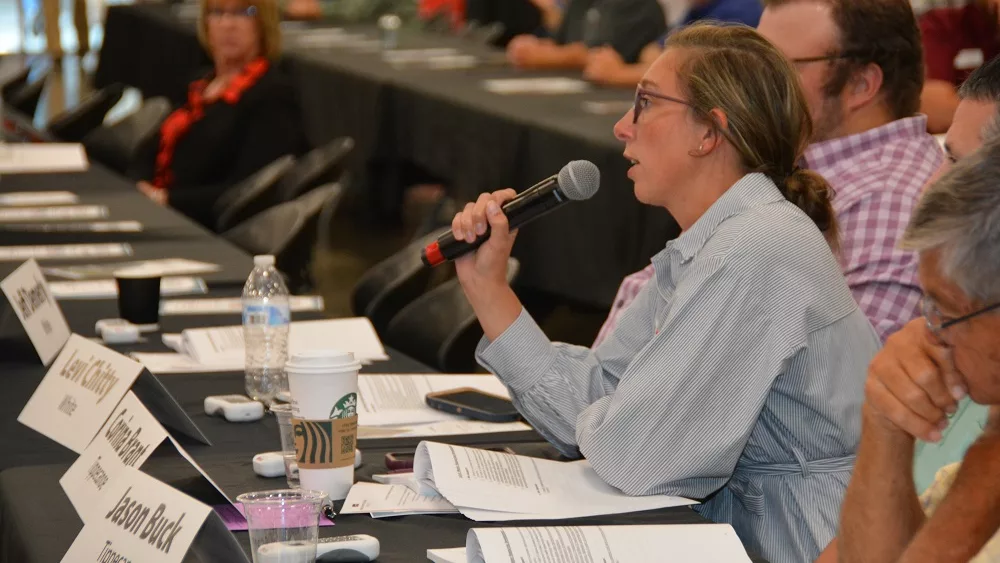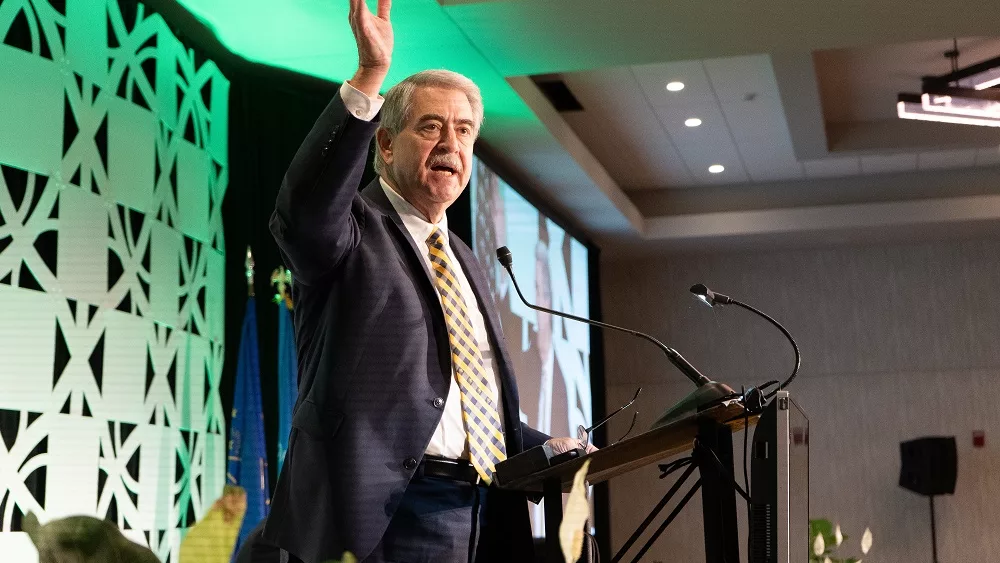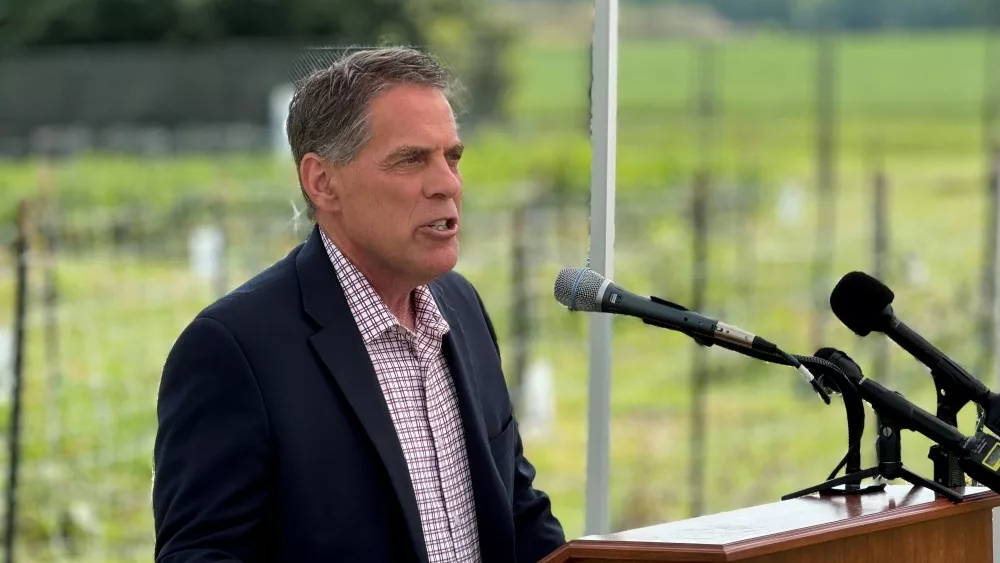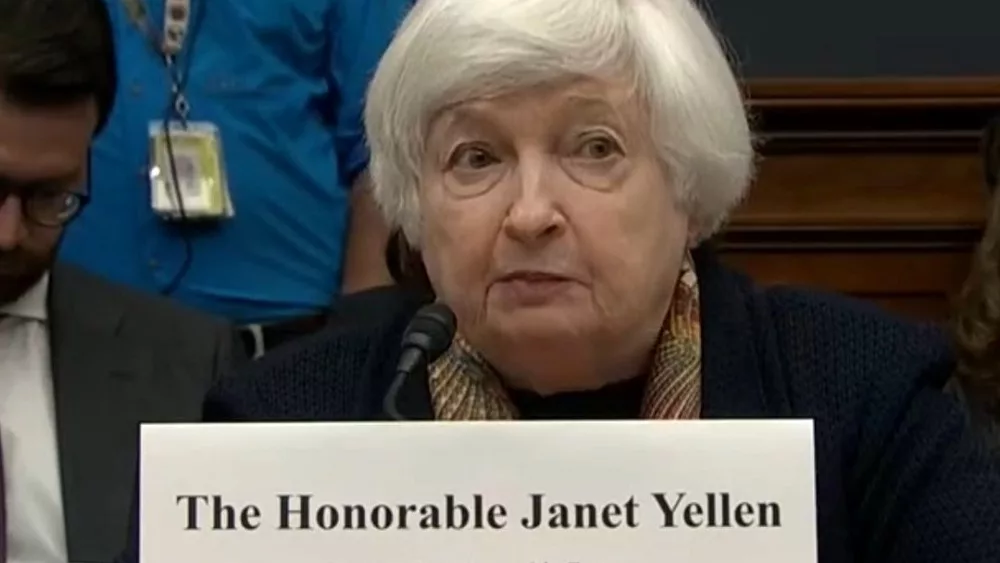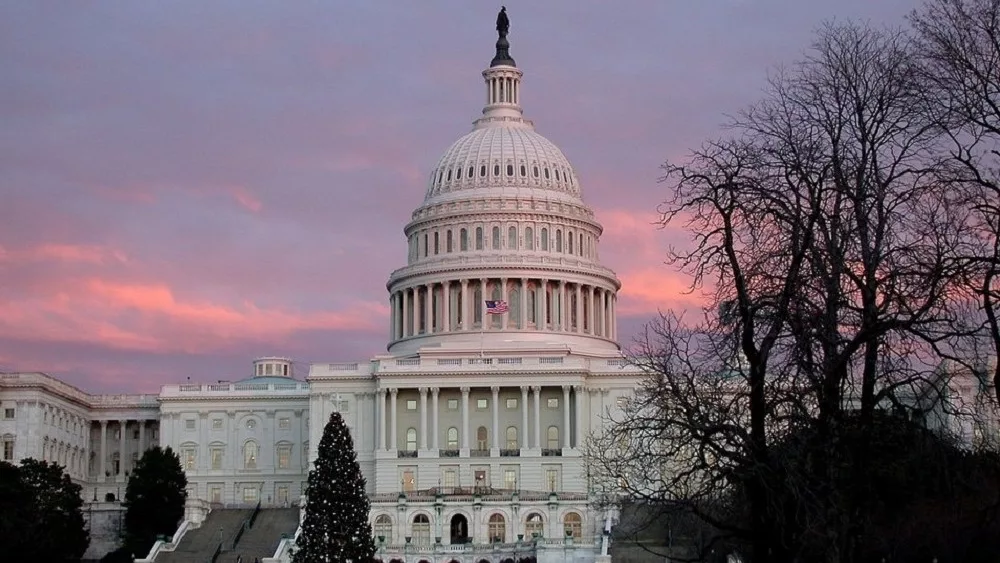At the recent Indiana Farm Bureau delegate session, water, rural broadband and property taxes were again top policy priorities. The property tax issue is on the mind of many Hoosiers, and for farmers it can be summed up quite simply.
As Andy Tauer, INFB executive director of public policy says, taxes keep going higher, but farm income is not.
“Farmland property taxes continue to rise, 17% in 2023 and a half percent or so here in 2024 and really estimating another 20% increase in 2025,” he explained. “That’s all occurring as the farm gate economy continues to head the other direction. I think USDA put out a report of 25% reduction in net Farm Revenue for this current year, and that really just adds to the strain for our members.”
He told HAT, INFB is looking for ways to modernize the farmland formula and create relief. But farmers know the proper balance must be struck so local communities aren’t hurt in the process.
“There’s gives and takes because there’s the other side of that ledger, you know local community services because property taxes, those go to local government, they don’t go to the state general fund. So, we’ve got to be cautious and find that right balance between being able to find some relief for our farmers and then not shift the burden elsewhere or be forced to reduce the services that our members see and have delivered to them in the rural communities.”
Getting high-speed broadband to all rural pockets of Indiana remains a priority as the expansion of on-farm technology opportunities grows.
“This is a priority the organization has been working on for several years now and we’ll continue to focus on it,” Tauer said. “We have been blessed here in Indiana with the general assembly allocating some funds, I think even back in the 2020 budget or maybe 2022 budget to expand access to broadband, and so we’re starting to see those dollars make it out to rural communities, but we still have some pockets. And so, we need to be able to kind of fill in those gaps because as our members and rural communities continue to utilize ever advancing technology, having that high-speed access to reliable broadband is critical.”
As broadband expands, there was also support among the 233 delegates for a standard height when constructing overhead communication cables which would allow better movement of farm equipment.
“One of the things that was interesting that came up on the delegate floor as those dollars and that connectivity is starting to make its way out into the rural communities, one of the unintended consequences that we’ve started to hear from our members is when they hang those fiber lines on the existing telephone poles, at times those line heights aren’t being placed at a high enough level to then continue to have access to be able to get farm equipment into the field. Again, an unintended consequence of being able to expand broadband and that connectivity, but we did have some discussion on the delegate floor about that.”
Tauer added, “We will continue to work with our partners at the Indiana Broadband Office as well as the general assembly and try to advocate to make sure that those resources for expanding broadband in rural Indiana continues in the next general assembly.”
(Delegate session photo courtesy of INFB)
More From Indiana Farm Bureau release:
(Indianapolis) – Aug. 20, 2024 – Indiana Farm Bureau member delegates gathered at the Hendricks County Fairgrounds on Saturday, Aug. 17 to determine the policy positions of the organization for 2025.
The delegate body consisted of 233 farmers and agribusiness professionals from across the state. The members discussed several issues including water rights, property taxes, renewable energy, land use, rural broadband and more.
“INFB’s annual delegate session provides the opportunity for our members to create policy positions for issues directly impacting agriculture and rural communities,” said Randy Kron, INFB president. “It is the foundation of our grassroots policy process and vital to the advocacy work INFB will be doing during the upcoming legislative session.”
INFB’s policy development process begins at the local level. Each year, all counties can make policy suggestions or edits. Then, those suggestions are debated by a resolutions committee before being brought to the full delegate session. The grassroots structure is vital to ensuring that INFB members can voice their opinions.
During this year’s event, the delegates proposed increased protection of agriculture’s right to water resources, not just farmers’ rights, which broadens protection beyond irrigation to livestock, food processing industries and others. The delegates also proposed establishing a transparent regulatory framework for large ground water withdrawal facilities to ensure proper monitoring occurs.
The delegates supported the prioritization of reducing property tax rather than income tax, the use of property tax caps on farmland as a buffer against rapidly rising farmland values and a modernization to the farmland formula.
“Water and taxes continue to remain our top policy priorities here at INFB, and that was evident by the discussions we heard from the delegates,” said Andy Tauer, INFB executive director of public policy. “There were conversations about a statewide water plan and the need for a better understanding for what we have in terms of the resource, as well as dialogue around a comprehensive review of farmers’ tax burden, modification to the tax code and where tax dollars are being spent.
“Farmland property taxes rose dramatically due to changes in the base rate of 17% in 2023, 26.4% in 2024, with another 20% increase estimated in 2025. With net farm income predictions to be lower this year while the costs of inputs remain high, farmers can’t take more tax increases.”
Other discussions focused on the support of renewable energy, while striking a balance regarding land use and farmland preservation. Additionally, there was conversation among members around expanded rural broadband access and support for a standard height when constructing overhead communication cables to allow for farm equipment. Delegates continue to support improving access to high-speed internet access to the last acre.
During the session, delegates also voted on members who would represent INFB at the 2025 American Farm Bureau Federation Convention. The AFBF Convention will be held in San Antonio, Texas in January. The INFB delegates chosen will discuss policy positions for the national organization with representatives from all 50 states and Puerto Rico. Five county Farm Bureau presidents were elected as delegates for the AFBF Convention:
Mike Beale, Carroll County; Josh Boxell, Howard County; Sarah Delbecq, DeKalb County; John Feutz, Gibson County; Nick Wenning, Decatur County
Over the next few weeks, the INFB board of directors will determine the priorities for the 2025 state legislative session. Federal priorities are set at the AFBF level based on input from all state Farm Bureaus. Now, the INFB public policy team will work with regional managers, district directors and county Farm Bureau members to decide which priorities will set the stage for the organization’s efforts at the Statehouse and in Washington, D.C.

